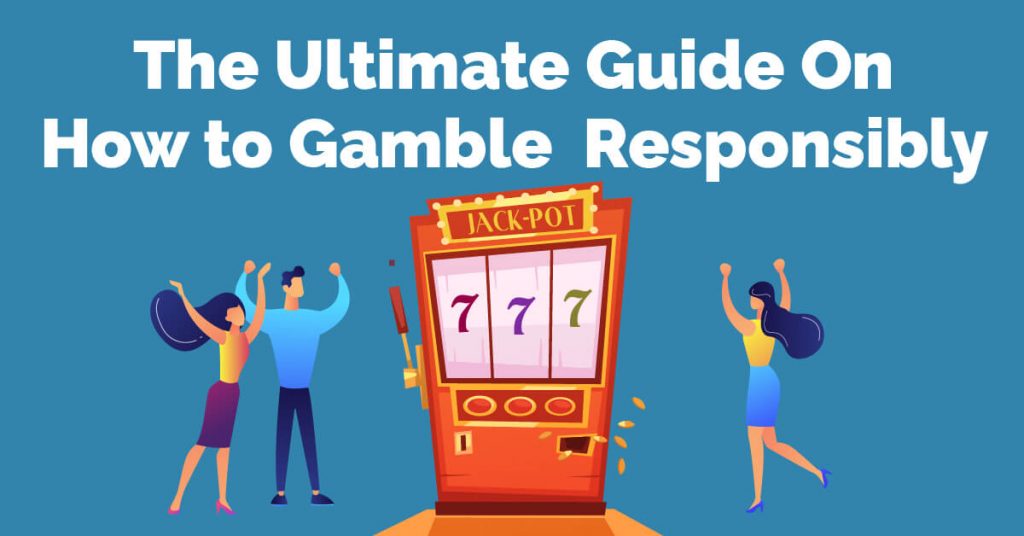
Introduction

Gambling can be fun, however, it can also be a deep and dark pit that can suck you in if you are not careful. To gamble responsibly means to be able to practice control over your gambling activities, and to not let it negatively impact other areas of your life. This means exercising caution, and control so that when you do gamble it is fun, and not something that can potentially take over your life.
People will gamble for multiple reasons, some do it just for excitement, the thrill of winning, or just as a social activity and something to change their daily droll routine.
Gambling should be a fun pastime, and it should not be a means to generate an income, even if you are desperate. While a majority of people can treat gambling as a recreational activity and will only spend what they can afford to risk, for some it can become addictive and dangerous. It is just as serious a problem as being a drug addict in many ways, and it can equally bring you ruin too.
Table of contents
Why it’s important to Gamble Responsibly
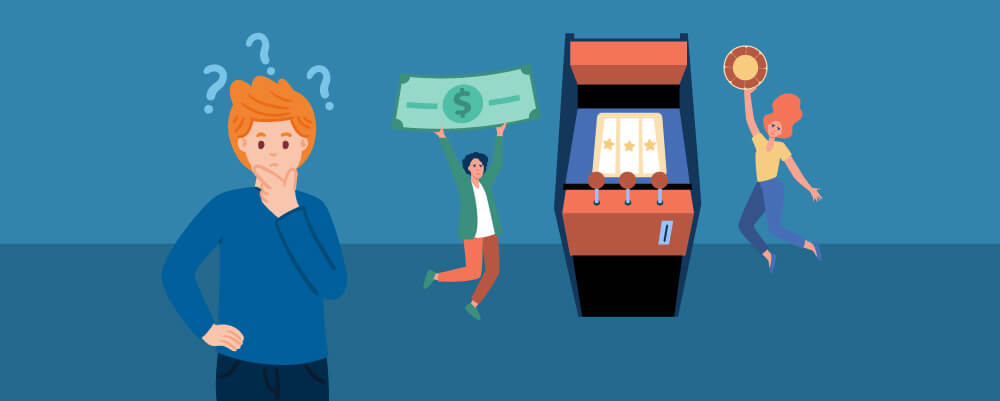
Understanding what it means to gamble responsibly is the first step in doing so. Sometimes it is hard to give in to the temptations of gambling, but as long as you exercise responsibility you can prevent your gambling from becoming a gambling problem.
Here are a few things that highlight what it means to gamble responsibly.
- Being in control of the time and money you are spending gambling.
- Seeing gambling as a form of entertainment rather than an income or money focused point of interest.
- Never bet more than you can afford to lose.
- Know the odds of the game, and accept them.
- Keep sight of your chances of winning, and know when it is not worth it.
- Acceptance that others may have higher spending limits than you, and that is okay.
- Refraining from returning the next time with the goal of winning back your losses.
Gambling is widespread, and it is very difficult to avoid. You can often play games such as poker and blackjack from the comfort of your own home, behind a computer screen. You can now play the lottery from your phone, and you can gamble online on apps too. We are also subject to the sports betting industry, and their endless advertising throughout sports broadcasts.
Not gambling responsibly can easily lead down the dark path that is gambling addiction. This type of addiction is a type of something known as an impulse-control disorder, where you have little or no control at all over your urges to gamble, even if you are totally aware that your action can hurt yourself and the people around you, even when odds are against you.
Gambling is a dangerous game, and there is often an underlying issue that leads to you beginning to gamble, however the issue, be it stress due to issues at work, relationships, or drug or alcohol addiction, or even if it is a form of escapism due to bereavement, or any other trying emotional periods in your life, can become a double-edged sword when paired with gambling. The emotional issue at hand can lead to using gambling as an escape, but then the gambling can turn into an addiction and create even more problems in your life.
If you feel a constant urge to gamble, even in times when you are in a difficult financial situation, or if you see gambling as a way out of potential financial difficulty, then you can feel assured that these are signs of having a gambling addiction. Not only can gambling addictions cause financial issues, but they can also cause friction in relationships, and in your work life too. Funding a gambling addiction can become very costly, and in extreme scenarios it really can cost you everything, not only that, but a gambling addiction only adds to the already high emotional pressures that likely led you here.
Oftentimes, people will relate a gambling problem to images of people turning themselves into an obsessive mess at a casino in Las Vegas. However, this is just the extremist vision, gambling problems can happen to anyone, from any walk of life. You can go from harmlessly betting on sports, doing scratch cards, playing some roulette, poker, or playing the slots, be it in a physical casino or an online casino. And this fun, harmless experience can quickly deviate and become an unhealthy obsession with serious consequences.
It doesn’t have to be at a casino, you could get obsessed with doing scratch cards, or going down to the track and placing a bet. These issues, much like alcohol addiction, drug addiction and more, can lead to strain in relationships, work trouble, and financial disaster that can lead to bills going unpaid, piles of debt, or even loss of property. An addiction can even lead down darker paths, such as running up debts higher than the Empire State Building, or turning to theft to get a hold of money.
A gambling problem is not always an addiction either, sometimes you can be a compulsive gambler, meaning that you are on your way to an addiction, but you are not at that point yet, instead you are just preoccupied with it, chasing losses, or gambling despite the consequences.
Often, gambling addictions come with mood or behavioural disorders, substance abuse, unmanaged ADHD, stress, anxiety, depression and so on, and to tackle a gambling disorder, you will often need to tackle these issues too, which can be hard and trying, and many people will often try to avoid tackling these issues.
It is important to gamble responsibly to maintain a healthy lifestyle, and prevent what could be a fun way to spend any extra income you have, from becoming an issue that can ruin your financial stability, relationships, and your work life.
What part does the UKGC play?
The UKGC is the Gambling Commission of the UK. They are basically the overseers of the gambling industry, ensuring that businesses run around gambling are responsible and fair, as well as licensed and run their operations within the law. They are also the top dogs in protecting vulnerable people, this means they recognize the issues around gambling and how these issues can affect people’s health and relationships.
Furthermore, they work closely with the Department for Digital, Culture, Media and Sport. And the Advisory Board for Safer Gambling, they do this to ensure that problem gambling is understood and researched properly. Their policies ensure that gambling licence holders are responsible to their customers also.
They research, educate, and treat people who are struggling with gambling issues. This is all funded by the gambling industry and every licensed gambling business, even including society lotteries, are required to contribute.
They are the overseers of the gambling industry, making sure that every person who gambles is safe and taken care of by the gambling industry as a whole.
When Is Gambling a Problem?
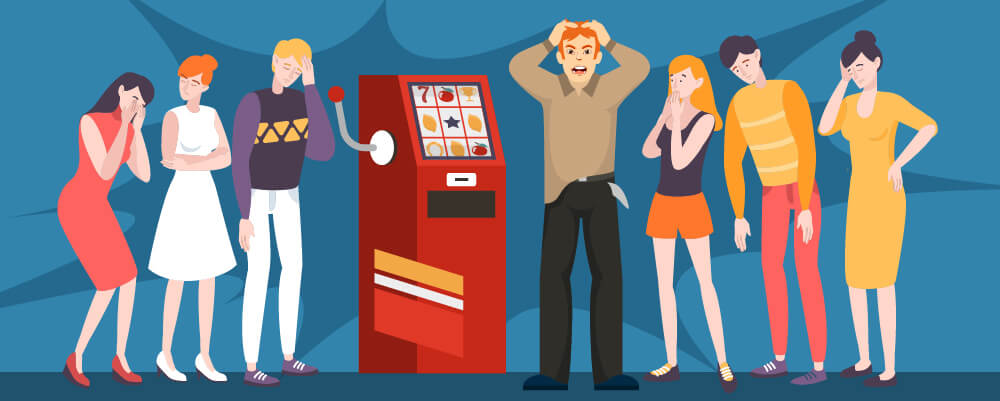
We have already spoken briefly about what makes gambling a problem. Let’s discuss this in a little more detail, to best understand how you can pin-point when gambling is really becoming an issue for you, so you can regain control of your gambling before things go wrong.
Gambling addictions are often caused by underlying stress that is linked to having a difficult period in your life, be it caused by work, relationships, or finances, as well as having an addictive personality that is prone to compulsive behaviour.
You can be a risk factor is you are dealing with certain emotional situations, these are some of those;
- Overcoming any type of social isolation by visiting casinos or betting shops. This is similar to alcoholism, when overcoming social isolation people will often turn to drinking as well. When combined, these two attempts at reintegration into society can be very dangerous.
- You may seek adrenaline or dopamine as a happy brain release and seek to get that rush through gambling.
- The feeling of numbness, or struggling with issues that do not have an easy resolve.
- Boredom and a desire to find a way to pass time.
- Dealing with stress and seeking a way to relax and unwind.
These emotional factors do contribute to what will eventually, possibly, become a gambling addiction. There are more obvious signs that there is a gambling problem, either within yourself, or within someone else.
A preoccupation with gambling
Preoccupation with gambling is a phrase that basically means that gambling has taken over your life, you have lost interest in all other aspects of your life, and gambling is your sole focus. You may ignore your family, or your responsibilities, your work, and instead are focusing entirely on the results of gambling.
In this situation the preoccupied gambler will also have frequent thoughts about their gambling experiences, be it reminiscing or planning their next trip to the casino, they may also think about handicapping, or planning their next venture, in some scenarios they may also think about ways they can get money with which they will gamble.
Loss of control/ unable to stop yourself from gambling
This means that you are unable to manage the impulsive urges you get to gamble, even in times when the odds are against you. It becomes less about the win and more about the rush of the experience, like an adrenaline kick. You may have made repeated failed attempts to get your control back, cut back on your gambling time, or to stop gambling altogether.
Increasing the amount of money to gamble on
It is also possible that you may find yourself increasing the amount of money that you use to gamble, this could be for a few different reasons. You may do this in the hopes you will make back your losses. Or you may do so to get the thrill you seek.
It may also be linked to the rush, some people may gamble to feel a rush of adrenaline or dopamine, after some time of having a gambling addiction, more and more money must be spent to get that rush that is sought, thus making the total money spent on gambling slowly increase until it turns into a danger to financial stability.
Therefore, if you feel like you need to spend more money each time you gamble, this is a clear sign that you are addicted, and it is time to get some help for your gambling addiction.
A negative impact on your relationship with friends and family
Another way you can tell that you are starting to experience a gambling addiction is if you start to find that it is negatively impacting the relationships around you, with those closest to you. This can often result in losing a partner as a result of a gambling addiction, this is not uncommon as it causes strains and burdens on the relationship, and can tear relationships between partners apart as the gambling becomes a priority to the addicted party.
Even if it has not reached this point yet, if a person is putting a relationship in jeopardy for the sake of their gambling, then this is a sign to take note that the person is suffering from a gambling addiction.
At the first sign that the gambling has taken priority over the relationship, it is a clear sign that help is now needed before the situation worsens.
Problems within the workplace
It is possible that gambling can cause problems in the workplace too. This can include many scenarios, such as an increased workload building up, absences from work, or a general lack of concentration which may make it difficult to complete work tasks properly, think of the phrase ‘ the lights are on but nobody’s home’, this is relevant to this.
Addicted persons may not realize that they are putting their career, jobs, or education on the line for their gambling addiction, however, as soon as they start to suffer and struggle at work it is clear there is an issue. Their mind may be preoccupied thinking about their next gambling venture, rather than focusing on their career and workload. They may fall behind in work, or end up in trouble with their job.
Making gambling a priority over family and work
As stated above, one of the biggest signs that there is an issue with gambling at hand, is when the person starts to prioritize gambling over their family and work, this means that they may be risking, or have already lost a significant relationship due to their gambling ventures, this can be an intimate partnership, a parent, or even a child due to this.
They may also have risked their career and job for gambling too, perhaps not turning up for work, being distracted and therefore falling behind in their job, or in some cases online gambling during work hours/ in the office as well.
Being in denial about your gambling problem
As is with any addiction, the biggest issue is recognizing that there is an issue there. If you find yourself getting defensive, angry, or refusing to consider the possibility that there is an issue when you are confronted with it, there may be some denial there. This is a trait often seen in others who suffer with addictions, be these addictions; gambling, alcohol, drugs, and more.
The first step to recovery from any addiction is admitting that there is an addiction in the first place, this is often the hardest milestone to pass to recovery from an addiction of any sort.
This denial could go as far as lying about the addiction, covering up the money that is actually spent on the addiction, or the extent to which you are involved, this lying could be to anyone, family, friends, work colleagues, or even a therapist. If you find that you are denying your problem to yourself and others, even going so far as to lie about it, then this is a clear sign that this is an addiction. The first step for you is to admit to yourself what is going on, and acknowledge that you have a gambling problem. Once you have admitted this to yourself, you are already on the road to recovery and returning to a healthy and normal lifestyle.
Remember that this is an addiction, although it is not substance abuse, many of the addiction traits you would see in substance abuse, can also be seen in a gambling addiction too.
You borrow money to keep gambling
Since money is central to the whole concept of gambling when things get severe enough, it is possible that people will turn to others to get money that fuels their addiction. This may be done through lies, asking family and friends for money so that they can continue to gamble, or it could get as serious as taking out a loan in the hope that they can make their money back.
This often ties in with lying and denial that there is a problem.
Eventually, no matter how much money you have, if you gamble enough, you run the risk of losing it all, and it is at this point that you will start borrowing money. This can therefore lead to the downfall of your relationships, if you borrow from friends or family, or it can lead to severe financial problems and in some serious cases repossessions if you go through a bank or lending company.
It is also possible that you may dig yourself into a hole, with banks, accommodation and access to necessities such as food, heating and tax, you may then rely on friends and family to relieve these desperate situations that have been caused by your gambling, this is referred to as a bailout.
You attempt to recover losses by gambling more
Unlike others who when they lose some money accept it and move on, you may chase your losses, feeling the urge to gamble more in the hope that you will win back the money you previously lost.
As your losses continue to rise, you may find yourself believing that ‘one more bet’ is all that you need to earn your losses back. To someone with a gambling problem, you may find that you feel like the next one is always the big one. This is how you feel you will recover from your previous losses and start to get ahead.
In addition to your mental reward that drives you to continue with this gambling, it is actually this delusional obsessive belief that the next is always ‘the big winner’ which makes compulsive gambling continue gambling at any length.
Where to get help with gambling problems
You can get gambling help from many places, in the UK there are plenty of places that can assist you in recovering from a gambling addiction. The UKGC helps with this, but there are plenty of other places. The NHS themselves assist in helping people who suffer with gambling addiction, as well as UKAT, Priory group, the recovery village, and gamblinghelponline as well.
You should also consider multiple mental health charities, as addiction and mental health often go hand in hand. GP’s can offer assistance in finding help, and they can also assist you in your mental health management. Mind.org.uk is also a suitable charity that assists with combating addiction, as well as many others. Combating a gambling problem often means also combating mental health and tackling any issues that led you down this path in the first place.
Do not be afraid to admit your issue to yourself, and ask for help from friends and family. A journey to recovery can be so much easier with the support of your loved ones.
How To Gamble Responsibly
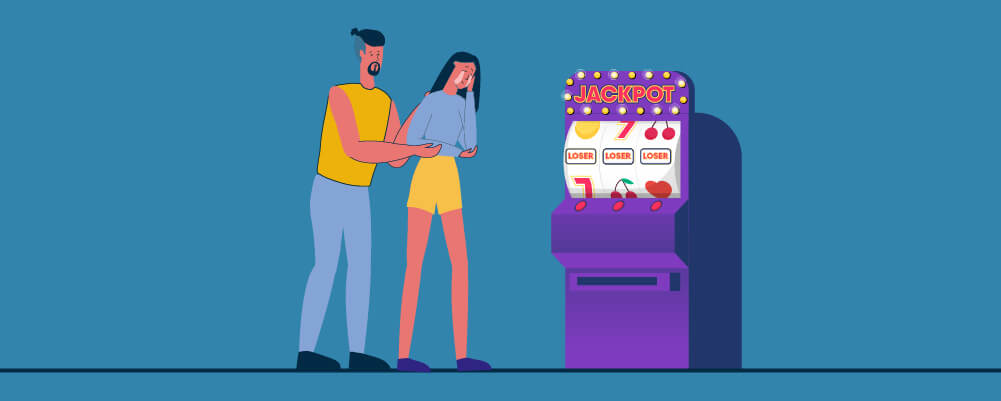
Being able to gamble responsibly changes everything. Just because gambling can lead to an addiction does not mean that gambling needs to be cut out altogether, just like alcohol, it is fine to participate in gambling as long as you are responsible and do not let it get out of hand.
When gambling responsibly, you will display the following;
- You are in control of the time and money you are spending.
- You see gambling only as a form of entertainment and nothing more.
- Not only that, but you do not bet more than you can afford to lose.
- Accepting and knowing of the odds at stake.
- You keep sight of your chances of winning and know when it is not worth gambling any more.
- You feel no need to earn back your losses.
- And you are accepting that different people have different spending limits when gambling.
A trip to the casino, playing a card game, doing the lottery, can all be fun forms of entertainment, but it is vital that they stay as forms of entertainment and that it does not drift into an obsession.
Set A Budget And Be In Control On How Much Money You Can Gamble
Sometimes it can be easy to go overboard with gambling. It is not like when you go to the store and can physically see the money that you are spending, especially if you gamble online. This is why it can be useful that if you use online apps to gamble, ensure the platform has responsible gambling mechanisms where you can set up a spending limit. Some of these can set a maximum amount to be played in a certain period of time.
Others will stop you playing after a certain amount of time and so on, each app is different, but most should have these gambling mechanisms that can help. If you want to slowly cut back on your gambling, this can be a useful way to do so.
Think of it as a challenge in yourself to try and manage all your finances better. You will feel better for it afterward.
Think of Gambling As An Entertainment
Remember that gambling is meant to be considered as entertainment rather than a source of money or income. Sure, it feels good when you win, but you cannot win all the time. Remember that it is a form of entertainment and this is why there is so much gambling diversity, as a means of entertainment it should be treated no differently to watching TV, or playing on a console, remember that it is entertainment only and that once you stop playing, you must return to the real world after. Much like we tell our kids to only spend a certain amount of time on their Xbox, it is important to view gambling in the same way.
Know When To Stop If You Lose Money
Check and limit your online wins and loses, as many gambling activities are random, players need to monitor how much they win and how much they lose. In the case that you notice a negative frequency, you need to decide if gambling is really for you. If you should decide that perhaps you need to take a break from this you can always choose to ‘self exclude’, with most online gambling apps this will close your account for any period of time.
Don’t Gamble More Than You Can Afford To Lose
You should never bet money that you cannot afford to lose. To avoid losing too much, you should ensure that whatever platform you use can implement responsible gambling mechanisms that will permit you to set up a maximum amount to be bet within any period.
Don’t Go Back Later To Recover Your Losses
Do not go back to recover your losses, because the chances are you will not. If you feel tempted, and you are finding it hard to resist the urge to try, take some time off of gambling to prevent it becoming a problem. Remember, gambling is meant to be fun, not stressful or a source of income.
Avoid Drinking Or Using Drugs Whilst Gambling
Alcohol and drugs can haze your mind, and these in themselves are addictive substances. Without a clear mind, you can end up spending more than you intend to and can end up getting yourself in a tight spot. Gambling is a problem in itself, these two other issues simply add more to the existing problem, so it is best to avoid imbibing in alcohol or drugs when gambling.
Don’t Make Gambling Your Only Form Of Activity/ Entertainment
There are plenty of other forms of entertainment out there, be sure to participate in them too. Hobbies, sports, console gaming, and other social activities are all good to do well. Mix it up a little and allow yourself to do other things too.
Take Breaks, Don’t Gamble Regularly
With any form of entertainment, it is good to take a break sometimes. However, since gambling can so easily become a problem, it is best to take regular breaks, spend time with friends and family outside of gambling experiences and remember that gambling is not something that needs to be done.
Avoid Bringing Large Amounts Of Money/ Or Your Card When You Gamble
Set yourself an amount that you can use to gamble. If going to a casino, do not take your card with you, only take a set amount of cash. If gambling online, set yourself a limit. Doing this will prevent you from losing great wads of money, and can make it more enjoyable overall.
Summary
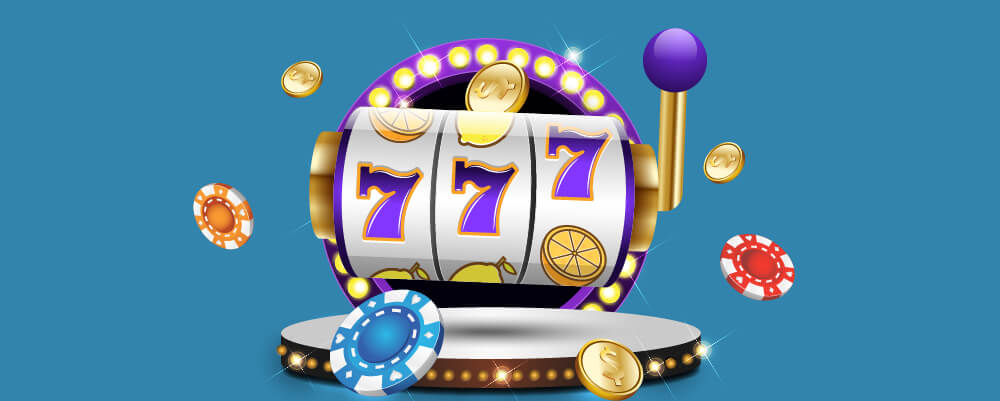
Gambling is meant as a form of entertainment, however it is all too easy to end up going overboard and slipping into addiction. If you find that gambling is taking over your life, relationships, work, and is consuming your every thought, you may be addicted, and it is time to get some help.
Remember to budget your gambling, and be sensible in your spending, in gambling and in other aspects of your life, if something is impeaching on your financial stability, perhaps it is not good for you after all.
Be aware, gambling addiction is all too common, and the first step in fighting it is to acknowledge that it is a problem in the first place.
